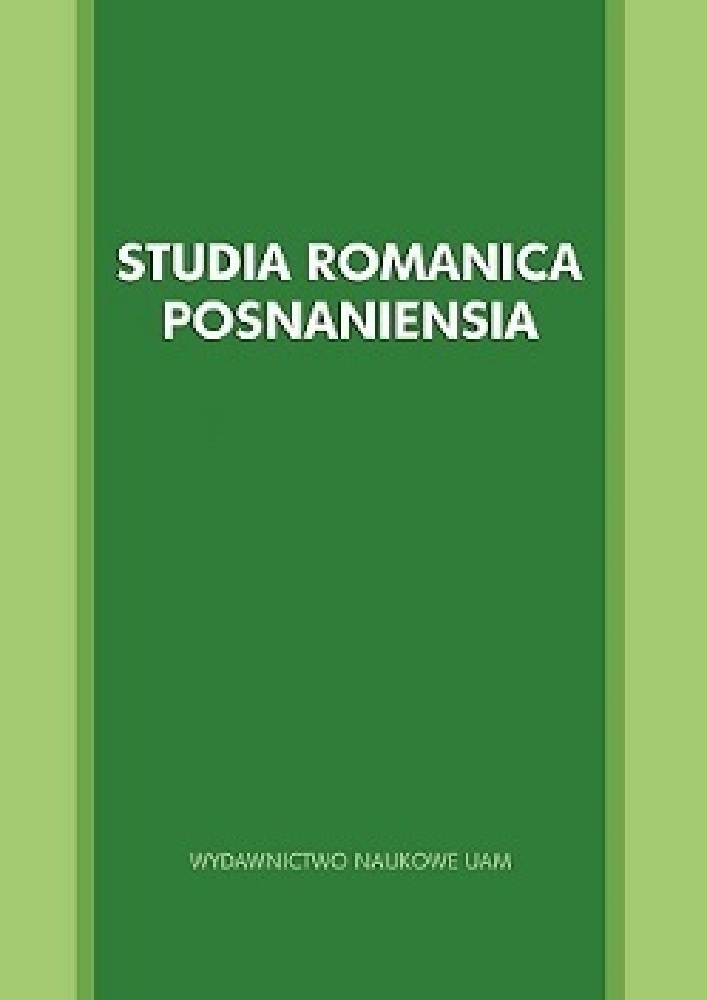Abstrakt
Green advertising encourages the public to adopt ecoresponsible behaviour in view of the deterioration of the environment. Thus, to involve everyone personally or collectively, it uses the imperative mode and deictics. The aim of this study is to highlight the main themes conveyed in green advertising in France and Poland, and also to show the interplay of personal poles in imperative slogans that become rallying phrases for the green cause. Polish makes general use of the imperative in the 2nd person singular, whereas French makes extensive use of the 2nd person plural. In both languages, the use of the 1st person plural is frequent, often accompanied by an adverb ensemble (razem) to emphasise the collective involvement in adopting eco-responsible actions.
Bibliografia
Adam, J.-M., & Bonhomme, M. (2012). L’argumentation publicitaire. Rhétorique de l’éloge et de la persuasion. Paris : Armand Colin.
Bralczyk, J. (2004). Język na sprzedaż, czyli o tym, jak język służy reklamie i jak reklama używa języka. Gdańsk : Gdańskie Wydawnictwo Psychologiczne.
Bréüs, V. (2002). Pragmatique et syntaxe de l’injonction : Les échanges oraux réglementaires des militaires français. L’information grammaticale, 93, 51-52. DOI: https://doi.org/10.3406/igram.2002.2686
Charaudeau, P. (2009). Le discours de manipulation entre persuasion et influence sociale. Acte du colloque de Lyon. http://www.patrick-charaudeau.com/Le-discours-de-manipulation-entre.html.
Cordelier, B. & Breduillieard, P. (2013). Publicité verte et greenwashing. Gestion 2000, 6 (30), 115-131. Dostie, G. & Sikora, D. (2021). Les phraséologismes pragmatiques. Préfabrication et lexiculture. Lexique, 29, 228. DOI: https://doi.org/10.3917/g2000.306.0115
Everaert-Desmedt, N. (1984). La communication publicitaire : étude sémio-pragmatique. Lou-vain-La Neuve : Cabay.
Jędrzejczak, B. (2020). Językowe środki perswazji w sloganach reklamujących polskie marki terytorialne na przykładzie haseł promujących Polskę, województwa i miasta wojewódzkie. Gdańsk : Wydawnictwo Uniwersytetu Gdańskiego. DOI: https://doi.org/10.18778/8142-463-9.16
Knaz, W. (2018). Le jeu des pronoms personnels dans les slogans publicitaires. Passerelle, 7 (1), 25-36.
Krieg-Planque, A. & Oger, K. (2018). Slogan. Publictionnaire. Dictionnaire encyclopédique et critique des publics. Mis en ligne le 20 février 2018. https://publictionnaire.huma-num.fr/wp-content/uploads/2018/02/slogan.pdf.
Laskowski, R. (1998). Paradygmatyka. Czasownik. In R. Grzegorczykowa, R. Laskowski & H. Wróbel (éds.). Gramatyka współczesnego języka polskiego. Morfologia (pp. 225-269). Warszawa: PWN.
Le Bidois, G. & Le Bidois, R. (1971). Syntaxe du français moderne, ses fondements historiques et psychllogiques, tome 1. Paris : A & J. Picard.
Le Goffic, P. (1993). Grammaire de la phrase française. Paris : Hachette supérieur.
Lesz-Duk, M. (2008). Wybrane cechy składniowe reklamy prasowej. In K. Michalewski (éd.), Język w marketingu (pp. 148-156). Łódź: Wydawnictwo Uniwersytetu Łódzkiego.
Rey, A. (1992). Dictionnaire historique de la langue française. Paris : Dictionnaires Le Robert.
Riegel, M., Pellat, J.-C. & Rioul, R. (2021). Grammaire méthodique du français (8e éd.). Paris : Presses Universitaires de France.
Licencja
Prawa autorskie (c) 2024 Alicja Hajok, Lidia Miladi

Utwór dostępny jest na licencji Creative Commons Uznanie autorstwa – Użycie niekomercyjne – Na tych samych warunkach 4.0 Międzynarodowe.
- Autor oświadcza, że przysługują mu osobiste i majątkowe prawa autorskie do Utworu oraz że nie są one ograniczone w zakresie objętym niniejszą Umową, oraz że utwór jest dziełem oryginalnym i nie narusza majątkowych lub osobistych praw autorskich innych osób.
- Autor udziela Uniwersytetowi im. Adama Mickiewicza w Poznaniu niewyłącznej i nieodpłatnej licencji na korzystanie z Utworu bez ograniczeń terytorialnych i przez czas nieokreślony na następujących polach eksploatacji:
2.1. wytwarzanie określoną techniką egzemplarzy Utworu, w tym techniką drukarską, reprograficzną, zapisu magnetycznego oraz techniką cyfrową;
2.2. wprowadzanie do obrotu, użyczenie lub najem oryginału albo egzemplarzy Utworu;
2.3. publiczne wykonanie, wystawienie, wyświetlenie, odtworzenie oraz nadawanie i reemitowanie, a także publiczne udostępnianie Utworu w taki sposób, aby każdy mógł mieć do niego dostęp w miejscu i w czasie przez siebie wybranym;
2.4. włączenie Utworu w skład utworu zbiorowego;
2.5. wprowadzanie Utworu w postacie elektronicznej na platformy elektroniczne lub inne wprowadzanie Utworu w postaci elektronicznej do Internetu, Intranetu, Extranetu lub innej sieci;
2.6. rozpowszechnianie Utworu w postaci elektronicznej w Internecie, Intranecie, Extranetu lub innej sieci, w pracy zbiorowej jak również samodzielnie;
2.7. udostępnianie Utworu w wersji elektronicznej w taki sposób, by każdy mógł mieć do niego dostęp w miejscu i w czasie przez siebie wybranym, w szczególności za pośrednictwem Internetu, Intranetu, Extranetu lin innej sieci;
2.8. udostępnianie Utworu zgodnie z wzorcem licencji Attribution-NonCommercial-ShareAlike 4.0 International (CC BY-NC-SA 4.0) lub innej wersji językowej tej licencji lub którejkolwiek późniejszej wersji tej licencji, opublikowanej przez organizację Creative Commons. - Autor zezwala Uniwersytetowi im. Adama Mickiewicza w Poznaniu na:
3.1. nieodpłatne korzystanie i rozporządzanie prawami do opracowań Utworu i tymi opracowaniami.
3.2. wysyłanie metadanych Utworu oraz Utworu do komercyjnych i niekomercyjnych baz danych indeksujących czasopisma. - Autor upoważnia i zobowiązuje Uniwersytet im. Adama Mickiewicza w Poznaniu do udzielania osobom trzecim dalszych licencji (sublicencji) do Utworu oraz do innych materiałów, w tym utworów zależnych lub opracowań zawierających lub powstałych w oparciu o Utwór, przy czym postanowienia takich sublicencji będą tożsame z wzorcem licencji Attribution-NonCommercial-ShareAlike 4.0 International (CC BY-NC-SA 4.0) lub innej wersji językowej tej licencji lub którejkolwiek późniejszej wersji tej licencji, opublikowanej przez organizację Creative Commons Tym samym uprawnia wszystkich zainteresowanych do korzystania z utworu wyłącznie w celach niekomercyjnych pod następującymi warunkami:
4.1. uznanie autorstwa czyli obowiązek podania wraz z rozpowszechnionym utworem informacji, o autorstwie tytule, źródle (odnośniki do oryginalnego utworu, doi) oraz samej licencji;
4.2. na tych samych warunkach, wolno rozpowszechniać utwory zależne jedynie na licencji identycznej to tej, na jakiej udostępniono utwór oryginalny. - Uniwersytet im. Adama Mickiewicza w Poznaniu jest zobowiązany do:
5.1. udostępniania Utworu w taki sposób, aby każdy mógł mieć do niego dostęp w miejscu i w czasie przez siebie wybranym bez ograniczeń technicznych;
5.2. poprawnego informowania osób, którym Utwór będzie udostępniany o udzielonych im sublicencjach w sposób umożliwiający odbiorcom zapoznanie się z nimi.
Pozostałe postanowienia
- Uniwersytet im. Adama Mickiewicza w Poznaniu zachowuje prawo do czasopisma jako całości (układ, forma graficzna, tytuł, projekt okładki, logo itp.).

